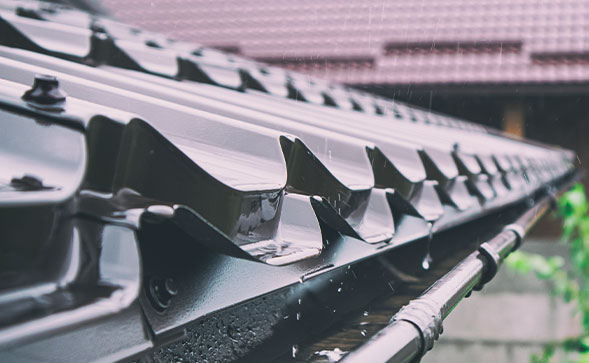Maintaining your house free from water damage depends mostly on gutters. They direct precipitation away from your landscape, walls, and foundation. But frequently, they get choked with trash, twigs, and leaves, which causes overflow and possible damage. Designed to stop this accumulation, gutter guards promise to lower maintenance requirements and keep gutters operating effectively. But are they only another pointless cost, or do they truly live up to their stated performance? Many homeowners question whether gutter guards are useful or whether they still have to clean their gutters even with them. This article looks at gutter guards’ advantages, possible drawbacks, and whether they would suit your house.
How Effective Are Gutter Guards?
Gutter guards are made to be a barrier separating trash from your gutters. They let water pass through while obstructing twigs, leaves, and other objects. Various kinds of gutter guards serve different purposes.
- Mesh guards: These have tiny openings allowing water in but preventing trash.
- Reserve curve guards: While pushing leaves to the ground, reverse curve guards guide rainfall into the gutter.
- Foam Inserts: Foam inserts capture trash on top and fit within the gutter so water may flow.
- Brush Guards: Bristles on brush guards capture trash while allowing water flow through.
Depending on the environment, the kind of trash surrounding your house, and your budget, every variety has advantages and drawbacks.
Do Gutters Totally Eliminate Cleaning?
One of the strongest assertions regarding gutter guards is that they save cleaning time. Although they help lower maintenance frequency, they do not eliminate its necessity. Little trash, including seeds, mud, and pine needles, can still build on top of or inside the guards over time. It implies that, albeit less frequently than with uncovered gutters, you can still need sporadic cleaning.
Furthermore, certain forms of guards are better than others in filtering minute particles. Even if your region has many trees, you might still have to routinely inspect your gutters to ensure they are operating as they should.
Can Gutter Guards Deal With Lots of Rain?
Whether gutter guards can manage heavy rain is another often-asked question. While some designs—especially mesh and reverse curve models—work well in light to moderate rain, they may suffer in severe downpours. Should the holes or apertures be too small, water might not enter the gutters fast enough to prevent overflow.
Avoiding this problem depends on good installation. Should gutter guards be absent at the proper angle, water might overrun them rather than find their intended path into the gutter. Choosing the correct kind for your environment is crucial, as high-quality guards that let quick water flow can help avoid this issue.
Do Gutter Guards Help To Avoid Ice Dams?
In colder climates, ice dams may cause major problems. These happen when snow melts on the roof, pours down the gutters, and refreezes, obstructing water flow. Some homeowners question if gutter guards might address this issue.
Although gutter guards cannot prevent the formation of ice dams, they can assist in minimizing the accumulation of trash that fuels problems connected to ice. Trapped water in blocked gutters is more prone to freeze and form ice dams. Keeping your gutters cleaner with guards may enhance drainage and lower the possibility of water freezing where it shouldn’t.
Are Gutter Guards an Economical Fix?
Though their cost varies greatly depending on the style and material, gutter guards might be wise. While professionally placed mesh or reverse curve guards might be more costly, simple foam or brush guards are reasonably priced.
The savings over time come from less maintenance. Installing guards might help you save money if you typically pay for professional gutter cleaning many times a year. If you are comfortable cleaning your gutters, the savings may not be as great. Homeowners should compare the initial outlay against the possible savings in running costs.
Do Gutters Influence Roof Warranties?
Some homeowners worry that adding gutter guards might violate their roof guarantee. Sometimes, poor installation results in problems like water backing up beneath the roof shingles, therefore voiding warranties.
Following manufacturer guidelines and, if necessary, seeing a specialist helps one prevent this. Many reliable installers ensure that gutter guards do not compromise the roof’s structural integrity, enabling homeowners to maintain their warranties intact and gain from better gutters.
Are Gutter Guards Fit for Every Home?
Although they can be helpful, not every house would need gutter guards. Gutter guards will greatly cut upkeep if tall trees around your property routinely shed leaves and trash. However, your gutters might not clog often enough to offset the cost if you live in an open location with little tree cover.
Furthermore, your kind of gutter system and roof might decide whether some types of guards will be efficient. Before making a purchase, consulting a specialist or conducting some study can assist you in selecting a good that meets the requirements of your house.
Conclusion
A useful addition to your house, gutter guards enhance gutter efficiency and aid in lowering upkeep. They are not, however, a whole fix for every gutter issue. Homeowners should consider elements like their budget, the level of trash in their neighborhood, and the kind of gutter guard most suitable for their circumstances.
Gutter guards are a sensible purchase if you want to reduce gutter cleaning, but know that sporadic maintenance will still be required. The secret is selecting the appropriate kind and guaranteeing the correct installation for optimal effects. Homeowners may decide if gutter guards would suit their property by balancing the benefits and drawbacks.


